The Empire of Gold (The Daevabad Trilogy #3) audiobook
Hi, are you looking for The Empire of Gold (The Daevabad Trilogy #3) audiobook? If yes, you are in the right place! ✅ scroll down to Audio player section bellow, you will find the audio of this book. Right below are top 5 reviews and comments from audiences for this book. Hope you love it!!!.
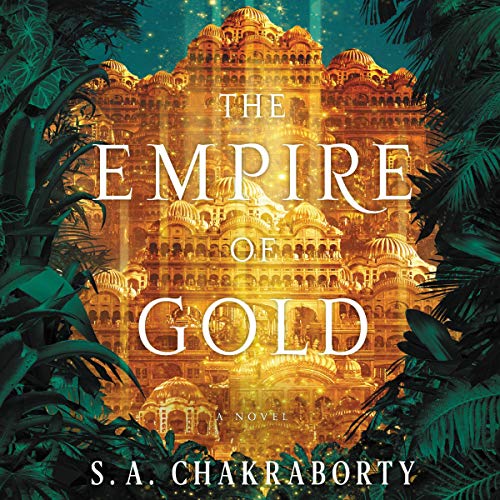
Review #1
The Empire of Gold (The Daevabad Trilogy #3) audiobook free
So I’m a big fan of this series since the first books, and though the end of book 2 left Chakraborty with a lot of loose ends to tie up, I was confident this would be the fitting end to the series all the other amazon reviewers seem to think it is. It’s not. Now before I get into my criticism, I have to emphasize Chakraborty’s actual writing skills are great, the prose is beautiful, the descriptions come alive, the dialogue feels authentic. She’s very talented. But while this is a well-written book, it is not written well. Why, you may ask?
SPOILERS AHEAD
The book makes absolutely no sense and there are several developments in the plot that are cheap, made for shock value, and add nothing to the story. None of the characters act like real people or make realistic decisions.
Characters repeatedly and blatantly act against their own interests. We learn at one point that Dara committed the atrocities at Quizi because the Nahids told him to. Only when he returned the Nahids immediately banished him. You would think being betrayed by the very people he had done the unthinkable to serve would have made him stop serving the Nahids, that he might even have a grudge against them. But no. Throughout the story he continually acts as Manizhehs weapon, killing hundreds upon hundreds of innocents despite how deeply guilty he feels, because she’s a Nahid. Then, when he finds out that she’s been lying and manipulating him, it’s still not enough for him to turn on her. When she refuses to listen to him and kicks him off the council, it’s still not enough. No one faithfully and blindly serves someone who repeatedly betrays them and disregards them. Same for the ifrit. Manizheh didn’t uphold her end of the bargain and yet they still helped her fight Ali and Nahri? Makes no sense.
And don’t get me started on Nahri and her obsession with Dara. How are you still torn up inside about a mass murderer whom you had a crush on for a few months six years ago?! I’m sorry, but the first book did not do a good enough job of establishing their apparently deep and unparalleled emotional bond. They were never even in a relationship, how was she so deeply in love with him that she hasn’t gotten over him even after learning he mercilessly killed thousands, kidnapped her, betrayed her, joined Manizheh, and despite not seeing him for SIX YEARS! Like I could see if this had been a long-term relationship and he was the love of her life but c’mon.
And this leads me to my next point which is the book wants you to sympathize with characters that are and always have been irredeemable. Dara was a mass murderer long before he met Nahri and yet these books have constantly made us believe there’s still good in him. That he’s not that bad a guy. Quizi wasn’t his fault, he was just following orders. Like yeah, Nazis were just following orders too. They’re still effing Nazis. Same with Manizheh. She’s broken, they said. She would’ve been a great leader in another life, they said. She wasn’t that bad until recently when she was forced to take over Daevabad, they said. Only we find out over 20 years ago she murdered her own brother, tried to kill his child, and then killed the mother of his child. All so she could have power. So, turns out, she’s been an evil psycho for a very long time.
Furthermore, Nahri, Ali and co. are able to succeed by exploiting rules the series has never fully explained. Its one of the basic rules of writing fantasy novels. A great amount of suspension of disbelief is required to read fantasy, and that’s fine. But it is the author’s job to define the rules of his/her world, and once they do the characters should all stick to those rules. You should never break or exploit a loophole in those rules unless the ability to do so has already been established beforehand, you’ve foreshadowed that it’s possible, and you have a really good reason to do so. It seems a lot of the magic in the Daevabad series derives from blood pacts, debts, and godly intervention. However, the author never fully explains how this works. For example, the random, ill-considered and ridiculous way Nahri outwits the peri’s who have given her the means to save Daevabad. She stabs herself with the peri’s magical knife, and says if they don’t leave her alone they will be in debt to her people for a thousand years. But how? Why? We have no idea, because like many things in the book, it is not elaborated on. And even if that had been a loophole that was exploited, I found it out of character that Nahri, someone usually so shrewd, who is willing to make unsavory compromises for the greater good, would make an enemy of the super powerful peris. Did I mention she did all this because she refused to kill the mass-murdering Dara (in fact, she actually heals him from the brink of death). I was rolling my eyes the entire time. Also having the peris snap their fingers and instantly fix all of the djinns’ problems was a complete deus ex machina and bad storytelling.
The magical peri dagger was one of many plot developments that added absolutely nothing to the story, but added significantly to the page count (Chakraborty could have and should have cut about 150-200 pages of this very long book). Another thing that added nothing was all the unnecessary and cheap plot twists. Let’s first talk about the most egregious one. Dara over the course of this series gets resurrected three or four times, twice in this book. Resurrection is a trope that should only be used once max in a series, and again, only for a very good reason. There was absolutely no reason to keep Dara alive. He was by far the most boring character in the entire series. His chapters, for part of the second book and 90% of the third, all went something like this: “I feel so bad for killing innocent people, but oh well, I guess I’m ordered to so I’ll have to stoop to murder yet again, woe is me.” It was impossible for me to sympathize with a character who whines about his situation, but does absolutely nothing to change it. Someone who goes on and on about how he feels so guilty for what he’s done, and then does exactly the same thing again. But back on topic, the multiple resurrections was stupid. So was the whole mystery surrounding Nahri’s family. Having one twist about your orphan characters family is Ok. Having three and four is excessive and unoriginal. First Nahri’s dead mother turns out to be alive. Then it turns out her husband’s boyfriend is actually her brother. Then it turns out Manizheh isn’t her mother she’s her aunt and Jamshid is her cousin. First Nahri is shafit, then she’s not, then she is, then she’s half shafit and half djinn. Like c’mon. It’s like Chakraborty keeps using the same type of twist over and over again. And all the misdirection adds nothing to the story, in fact, it detracts from it. The last “twist” that struck me as really strange is the fact that Ali has to change his appearance and basically turns into a human crocodile. It made it hard for me to root for Nahri to be with someone more marid than djinn. Don’t get me wrong, I love the fact that Ali had to sacrifice something to the marid in order to receive their help, but making it change his appearance that drastically was weird to me.
Lastly, the book is full of cliches. The whole hero-in-love-with-the-bad-guys-henchmen cliche, the whole henchmen-turns-on-his-master cliche, the long-lost-family-member cliche, the whole I-can’t-kill-the-bad-guys-or-I’m-just-as-bad-as-them cliche, and on and on. The ending makes no sense. After establishing that Manizheh, the ifrit and their side are depraved psychopaths, who will always stoop to lower and lower depths to defeat their enemies, it doesn’t make sense that three naive djinn who have stupid moral qualms about killing bad guys, could possibly defeat the bad guys. Chakraborty overpowered her bad guys to the point that it made it unrealistic and unbelievable when the good guys succeeded. And what’s worse is Nahri and co didn’t have to make any sacrifices or cross any lines in order to win. In this world it’s been established that everything comes at a cost, yet there was none required to defeat Manizheh. The one good thing the book did was make Ali sacrifice something for the sake of getting the power and aid he needed to help Nahri. But none of the other characters had to.
END OF SPOILERS
Overall, this book was much too long and didn’t earn its page count. The characters acted in ways that were completely unrealistic and the opposite of the way humans (or djinn) actually act. People made out of character decisions at a moment’s notice, and the plot suffered from unnecessary unforeshadowed twists and many plot conveniences. I expected better from such a talented writer. Reading it was an intensely frustrating and disappointing experience. If I had known it would be this bad I would have skipped it entirely.
Review #2
The Empire of Gold (The Daevabad Trilogy #3) audiobook streamming online
I loved the first two books in this trilogy and once I started this one I couldn’t put it down…which leads to losing a bit of time when a book clocks in at nearly 800 pages! Worth every second, though. I really enjoy the way this trilogy builds a compelling picture of people on several different sides of a conflict with long historical roots, and makes you understand completely why they all make the choices they do – even when those choices are terrible. I also enjoy that it portrays this conflict in all its horror while never being unkind or losing sight of the small human (or only sometimes human, technically) things that give its characters hope.
This last book absolutely sticks the landing for both the characters and the plot – loose ends are tied up, a few more twists are put in stories you thought you had figured out, and everybody gets a satisfying ending. Old characters come back and there’s a couple of fantastic new ones too. I laughed out loud a number of times, I held my breath a lot more, and now I need to go back and read the first two again to watch the whole story come together. I’ll miss spending time with Nahri, Ali, Dara, and all their supporting cast, but I’m very excited to see what the author does next.
Review #3
Audiobook The Empire of Gold (The Daevabad Trilogy #3) by S. A. Chakraborty
>>>>>My Synopsis (Review follows): <<<<<
At first glance, Nahir appears to be an average girl. Take a second glance, and you will probably notice her eyes–they’re unnaturally black. If you take the time to take a closer look, however, and really see her, you’ll notice there is nothing average or ordinary about her.
Nahir lived on the streets of Cairo from the age of five speaking a language no one else knew or had ever heard. She didn’t remember much about her parents or where they hailed from. Living on the streets, she survived anyway she could. She could smell a con from a mile away because she’d used most of them. Six years ago, however, everything changed. While attempting to hold a zar, a traditional ceremony meant to deal with djinn possession, she decided to sing one of the songs in her native tongue (thinking it would sound unusual and eerie) when a disembodied voice responded to her in that same language–the one no one else had ever known.
Since that fateful day, her life has been caught up in a series of twists and turns, ups and downs, and life altering decisions. She’d been whisked away to a magical hidden world and discovered djinn, magic, and wonderfully terrifying magical creatures she could never have conceived of were real. She also learned she was somehow a part of it all.
Now, just as Daevabad, the magical city Nahir had been spirited away to, finds itself in the middle of civil unrest, she finds herself back in Cairo faced with another life altering decision–should she stay or should she go back? Yet, the decision is not entirely hers alone. Somehow she and Ali, the djinn prince, were transported to Cairo together, and Ali is not doing all that well.
“Do you know how many times I’ve had to do this? Forget healing; my specialty should be having my life destroyed and then being forced to rebuild from nothing.” (…)
“I’m so tired,” she said, her voice cracking.
“Everything I build gets broken. My life in Cairo. My dreams for Daevabad. I give everything–everything–I have. Only for someone to come along and smash it. It’s all for nothing. Nothing.”
>>>>>My Review: <<<<<
This is the third and final book in the Daevabad Trilogy, and I am very sad to see this tale end. If you haven’t read any of the previous books do not start with this one. It begins where the last book left off, and the events in each book build upon those in the last. If you don’t read the previous books you’ll find yourself utterly lost and won’t enjoy the tale as much as you should. That said, I always worry that when the last book in a series comes out that it won’t keep up with the momentum and bookish goodness of the previous books before it. I am happy to say this one passed the test and delivered a wonderful and magically delicious ending. I absolutely loved it. While I tried to devour this one in one sitting, it boasts nearly 800 pages, sadly, I had to take some time to sleep before continuing through to the end of the saga. If you can manage to hold out to the end, however, your sacrifice will be well worth it.
It’s been six years since Nahri was whisked away to Daevabad, and a lot has happened. Her skills as a healer have become stronger, she’s gained friends and family, but could it be her forever home? Orphaned at an early age and living off the streets in Cairo she’d never truly felt she fit in anywhere, but Daevabad has been the closest she’s ever come. Not all she’s experienced in Daevabad has been pleasant. She’s been lied to, betrayed, used as a pawn, but she’s also grown in so many ways. She’s stronger and wiser than when she first arrived, and now, she finally has the chance to decide her own fate. She’ll have to do it, however, without her magical healing abilities. For whatever reason, magic is gone, and she and Ali will have to survive using nothing but their wits and resourcefulness. If they decide to return to Daevabad, they’ll have to travel halfway around the world just as regular humans would. There will be no shortcuts.
There is no doubt that the kingdom of Daevabad is in trouble with Manizheh vying to be the kingdom’s next ruler. Nahri and Ali have been granted a reprieve from the chaos, but eventually Ali, if not both of them, will need to return. What I liked about the situation in Daevabad is that it mimics life. Someone can seem like they’d be the perfect leader, but until they come into power you truly don’t know how they’ll handle things. They may have a hidden agenda that will be revealed only after they take control. Promises may be broken. Still, people will follow them because they won’t believe the person they believed in is capable of doing whatever it is they do. Some will never be able to wrap their head around it. The story also captures the complex emotions that motivate people to do things they’d never think themselves capable of doing whether that be for the better good or bad. I must say I enjoyed the contrast between Nahri and Manizheh. They found themselves in somewhat similar situations, but handled themselves in very different ways. In many ways I felt they were two halves of the same coin, but, oh, how their perceptions on things varied.
I couldn’t help but give this one 5 out of 5 roses. The story started out slow and steady, but consistently gained momentum like a wave until it crested and everything came crashing down. The world building was phenomenal. I felt like I’d stepped into another world that I didn’t want to leave. The characters were relatable, complex, and multidimensional. Twists and turns were thrown at you from all directions keeping things interesting and ensnaring the reader under the tale’s beguiling spell. If you’re looking for a story to escape reality for just a little while, this may just be the trilogy for you. I absolutely loved it and HIGHLY recommend it. While there is a little romance in this novel, it is not the focus of the story, therefore, I’m forgoing my romance rating on this one. Did I mention I loved this trilogy? lol Definitely in my top 10, maybe even 5 trilogies/series. If you’re wondering–Yes, I bought this one. I couldn’t help myself, but originally I was given an eARC loan from the publisher in exchange for an honest review. That in NO way altered or affected my review or rating. The Daevabad Trilogy is definitely a keeper that would make for an excellent book club discussion.
Review #4
Audio The Empire of Gold (The Daevabad Trilogy #3) narrated by Soneela Nankani
This book was the absolute perfect conclusion to the most amazing trilogy I have ever read! This review will contain spoilers for the first two books so please dont read this if you havent read the first two books. I have tried to keep this review spoiler free!
Before I start my review let me just say, I love Alizayd with my whole heart and I will forever be thankful to Shannon for bringing him to life and giving me the complex nuanced Muslim rep of an apologetically practicing young Muslim I had been craving.
This whole trilogy is phenomenal and Empire of Gold was an absolutely amazing conclusion which simultaneously left me satisfied and yet left me craving more stories of all the amazing characters. The story starts where The Kingdom of Copper ends which was a nice surprise as I had no idea what to expect with how much time had passed. But The Empire of Gold starts exactly where book two ends so we see the aftermath of everything that happened in The Kingdom of Copper.
Shannons writing is extraordinary, I am completely immersed in the world that she has created, I can almost touch and taste everything and any and all food references left me craving it all. Her world building is absolutely phenomenal and in this book we get to explore new places that are part of the Daevabad world including Ta Nytry and all I want to do is go on holiday there, it sounds incredible.
This trilogy has some of the most complex characters I have ever read and they all make you see their side of the story which makes it more complicated as to who you want to root for. No character is perfect, they all make bad decisions, things they regret and they all have to deal with the consequences of these decisions. It made each of them more compelling to read.
We get the point of view of Nahri, Ali and Dara so we see what is happening both in Daevabad through Dara and outside Daevabad through Ali and Nahri. Through Ali and Nahri we see them trying to recover after ending up in Cairo and their chapters are much more light hearted and at times absolutely hilarious and it contrasts starkly with Daras point of view which is really dark and at times very difficult to read.
I found myself going back to reread Ali and Nahris chapters and their banter and awkward flirting and skirting around their complicated feelings and honestly it was a joy to read. The first half of The Empire of Gold has some of my favourite scenes in the whole trilogy, especially chapter nine. I love that chapter with my whole heart!
Nahris story arc was so wonderful to read. She goes from a con artist in the streets of Cairo to leading a rebellion and fighting for justice for all in Daevabad. I loved watching her grow throughout the trilogy. She has been through so much and because of her circumstances she finds it hard to trust people and open up to anyone in case she gets hurt but watching her slowly open up to Ali was so wonderful to see. She deserves to have someone in her life that she can trust and depend on and who wont hold her back or dictate her life.
Ali is of course my favourite character in the whole trilogy, its no secret how much I love him and watching him grow from the nave teenager to the man we see by the end of the trilogy was truly wonderful. He is still socially awkward and has the absolute worst timing but he learns and grows so much throughout the books. He is still unapologetic in practicing his faith yet he has learned that Islam is not black and white and there is a lot more nuance to the religion than he initially believed. He also learns a lot about his families past and heritage which also affects him in many ways. Especially in chapter thirty seven I felt for him so much. His story by the end is one of a man who will rebuild his home and care for its people and he is still driven by social justice but just like he is there for Nahri, Nahri is also there for him to ground him when he may get carried away with his ideas of change.
Daras story arc was fascinating to read, I really do not like him, he spends so much of the book saying how he has been made into a weapon, which is true and I hate how the Nahid council manipulated him into becoming who he is, yet it takes him far too long to learn and take a stand for himself. There is a scene where he is talking to Kartir about this and Kartir tells him to instead think of all those victims who died and to try to atone for his mistakes and I just wish he had learnt that earlier. I wanted him to realise that actually the shafit or jinns werent the ones who caused his life to become what it was it was in fact the Nahid council and to spend more time thinking about how to make amends for his actions. I felt like screaming please Dara use your brain at him many times! It got to the point where it was very difficult for me to empathise with him anymore but there was a chapter that despite everything I truly felt for him and could not believe that Manizheh actually did that. But Shannons writing is truly exceptional that she created such a complex character that people see in so many different ways.
We learn a lot and have many questions answered that have been on our minds since reading the first two books and yet I wanted more. If Shannon had written a thousand page book I would have happily read it, I am not ready to leave Daevabad. I am especially not ready to leave Ali, Nahri, Muntadhir, Jamshid and Zaynab. I want to know more I want to follow their lives post Empire of Gold. I especially wish we had gotten to see Muntadhirs or Zaynabs point of view in this book. It would have been so interesting too see what was happening in other parts of Daevabad and these two siblings trying to work out how to save everyone from within.
I also loved seeing Ali and Nahris relationship develop over the trilogy. I loved how they were rivals and initially hostile towards each other and were forced to be around each other and ended up becoming friends and slowly we see something more. The fact that despite them developing more than friendship feelings for each other doesnt stop them being friends was so wonderful to see. Ali is of course smitten (though he constantly denies this). Nahri slowly develops more feelings for Ali in Empire of Gold and when anyone points this out she also denies it but I really loved seeing such a healthy relationship in a book. Ali expects nothing from her, he knows that she finds it difficult to let people in and he lets her decide where their relationship goes. And of course the awkward flirting was absolutely hilarious to read. No smooth lines between these two idiots and I loved them for it!
Shannon ended the trilogy beautifully, it isnt a happily ever after, instead we get to see a hopeful new beginning for all of the characters as they navigate their lives with all the changes that will inevitably happen. This trilogy will forever hold a special place in my heart and I couldnt have asked for a better conclusion.
I have so much I want to know about their lives at the end but I also love the ending. I could talk about this book forever, there is so much more I want to say but I dont want to spoil anyone so this will have to do for now.
PS. I will never be ready to leave Daevabad so I am praying that Shannon returns here one day but I am also very excited about reading her next series which will involve pirates!
Review #5
Free audio The Empire of Gold (The Daevabad Trilogy #3) – in the audio player below
Whelp the Daevabad Trilogy has come to an end and Im so bereft, yet so satisfied.
After I read The City of Brass I wasnt sure Id ever describe this series as one of my favourites, but here we are. Are there still some things about it I dont quite get as much as Id like to? Of course, but what I love about this series is that its clear its been written by a history lover, and as a history nerd myself Im weak for stories like this.
After the explosive end of The Kingdom of Copper I knew wed be in for a ride in this third and final book, and man was I right. At around 750 pages long, this is the chunkiest book in the trilogy but I raced through it; this whole novel felt like such an adventure and I was torn between wanting to do nothing but read it and not wanting to finish it so I could stay with these characters, and in this world, a little longer.
If you love fantasy stories that heavily feature politics and history, written by authors that arent afraid to hurt anyone, then you need to give this series a try. Theres so much in this series that readers can sink their teeth into. Personally I always know a fantasy series has done its job when I want to read even more stories set in its world, and while Ill happily read whatever Chakraborty writes next Id definitely be interested in seeing another side of this world from her in future.
Right now, though, were here to talk about the finale of this story, and I loved it. Perhaps even more importantly, I was satisfied by it. Sometimes endings can feel too wrapped up in a neat little bow and, while a part of me might argue that quite a few characters ended up a lot safer than I expected, theres no denying that Chakraborty puts her characters through the ringer. Everything in this novel, both good and bad, felt earned, and theres nothing more satisfying than that in a series finale.
What I loved most about this particular novel was how Chakraborty was able to change my mind. I was so frustrated with Dara in both of the previous books, and hes still not my favourite, but wow is it easy to understand where hes coming from. Theres so much more of a sense of how unfair life has been to Dara in this novel, how badly hes been used over and over again by those who demanded his loyalty, but whats wonderful is that his history is never used as an excuse for his actions. Dara isnt allowed to play the lifes been hard card and move onhe has to face the consequences of his actions, and in doing so make decisions that will leave a better legacy than the one hes already left.
I mentioned in my review of the previous book that I wasnt keen on the romance that seemed to blooming between Nahri and Ali I want more women and men to just be friends in fantasy, please but, I have to admit, this was another thing Chakraborty managed to twist my arm on. I still dont love the idea of them together romantically, I still prefer their friendship, but Im not exactly against it either. Their relationship in this novel, whether its platonic or romantic or a mix of the two, is one I couldnt help rooting for, and I particularly loved the way Chakraborty left it. Thats all Ill say on that matter.
Speaking of Ali, yes I still adore him and its him, more than anyone else, that I was gutted to say goodbye to when I got to the end of this book. Like Dara, Ali goes through some stuff and learns a lot about his own family history in the process. So much of this novel focuses on the sacrifices we make for the greater good, whether its the greater good of the world or merely our own greater good. For Dara its whether or not hes going to be remembered as nothing but a weapon; for Ali its what hes willing to trade to guarantee the safety of the djinn; and for Nahri its whether a fresh start in Egypt is worth leaving everyone in Daevabad behind for.
In fact Nahri is another character I was pleasantly surprised by. Ive mentioned in both of my previous reviews that Ive never quite got her for me her con artistry never quite matched her desire to be a doctor but I did understand her a lot more in this book. Does a part of me still wish she wasnt as sanctified as she in this book? Yeah, kinda. As soon as a series tells me its heroine is a con artist then I want a con artist, yknow? I want someone whos bordering on villainy, and Nahri isnt. Ultimately, shes good-hearted.
I cant hold that against her, though, and I dont want to waste my review talking about what Nahri isnt instead of talking about what she is, and what she is is a survivor. All of her choices make sense and thats all I can ask of the characters I read. Nahri might not be as morally grey as I expected her to be when I first picked up this series, but theres no doubting that shes fun to follow around and that shes a woman who really deserves a break.
This novel did what many of the novels I love most do: it made me nostalgic. That makes no real sense when stories like this arent hugely similar to the stories I grew up with. This series is much more Arabian Nights than Grimms Fairy Tales and I was more familiar with the latter as a child, but The Empire of Gold had the same sense of adventure and journeying and doing whats right over whats easy that Ive always loved in my stories. Add to that its focus on history and politics and this is a winner for me.
Im going to miss this world a lot, although Im sure Ill re-read this trilogy in future, but until I return to it Im so pleased the ending was a good one!
Recommend Books
Audiobook09 player
If the audio player does not work, please report to us, we will fix it as soon as possible (scroll up a little you will find the "REPORT CONTENT" button).


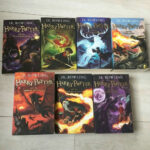

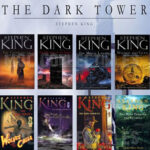
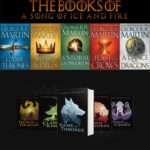
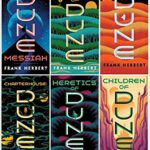





0 Comments: